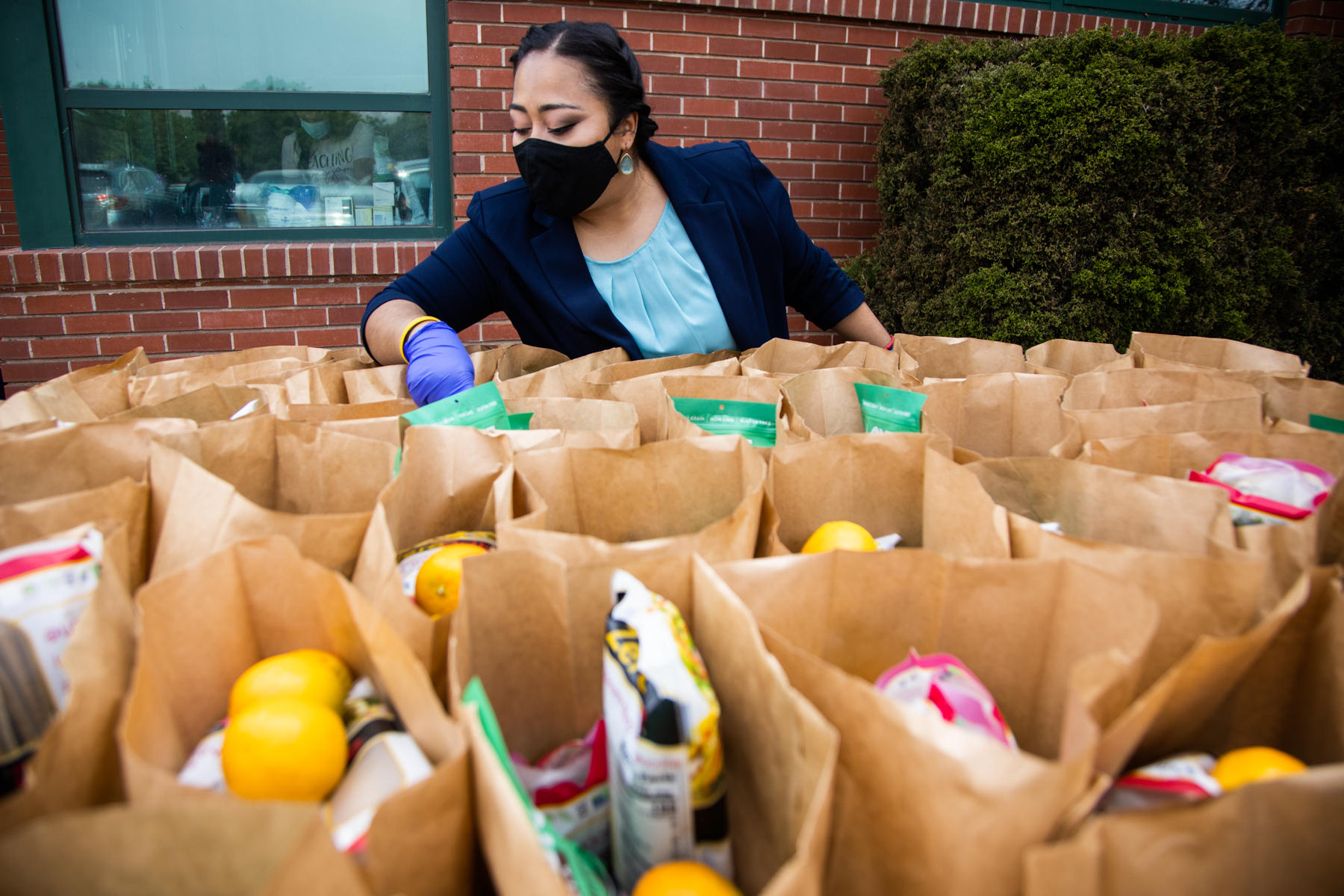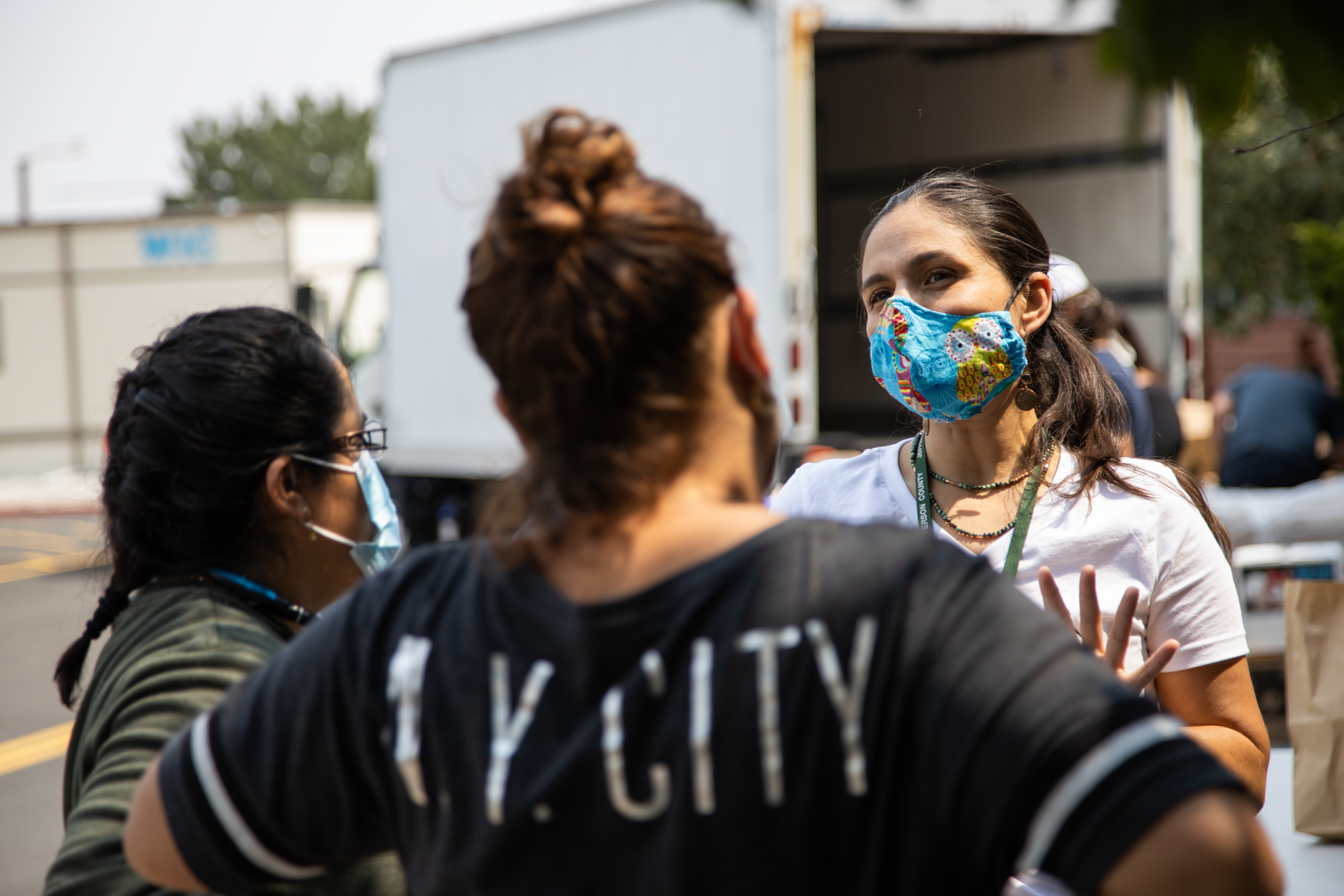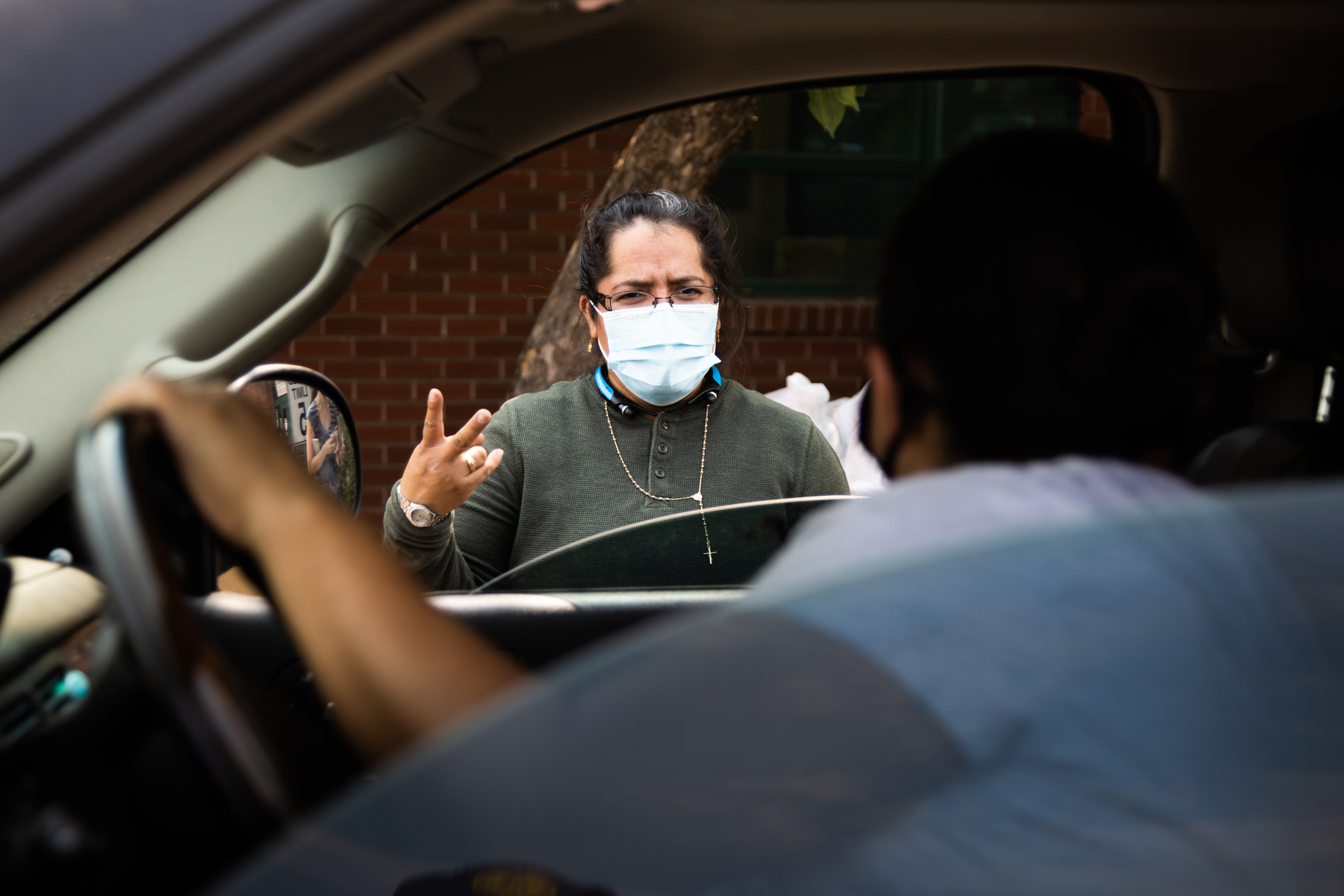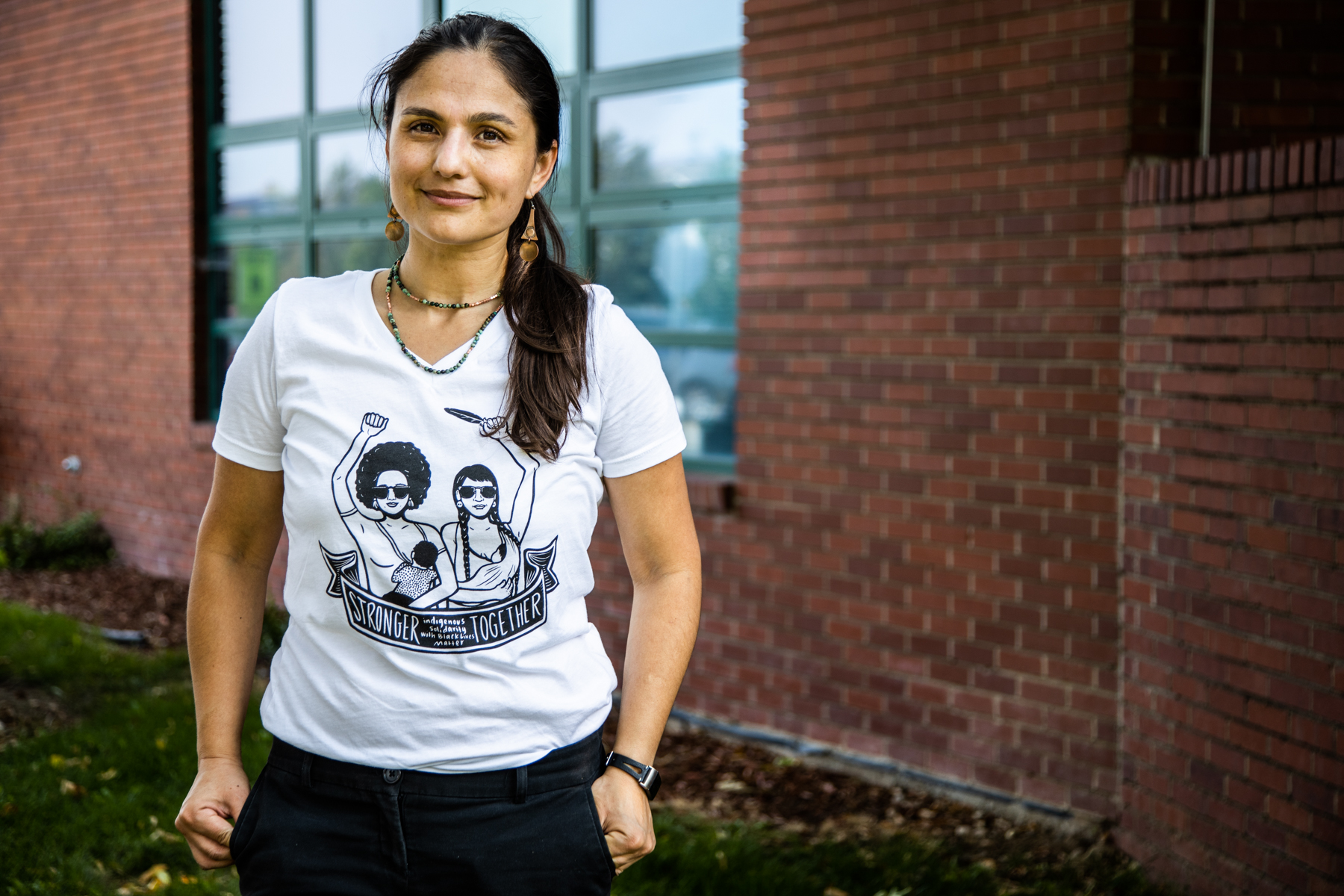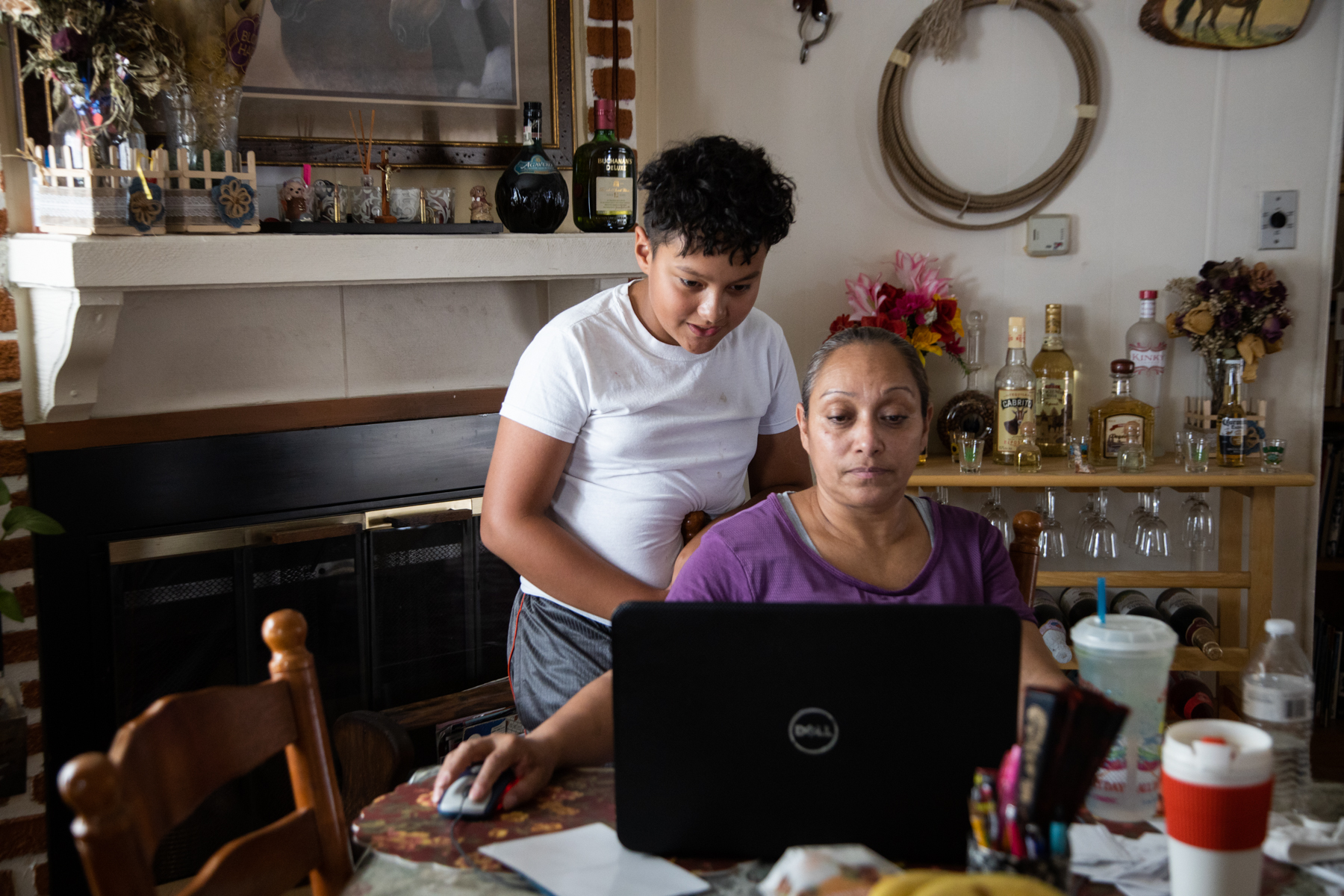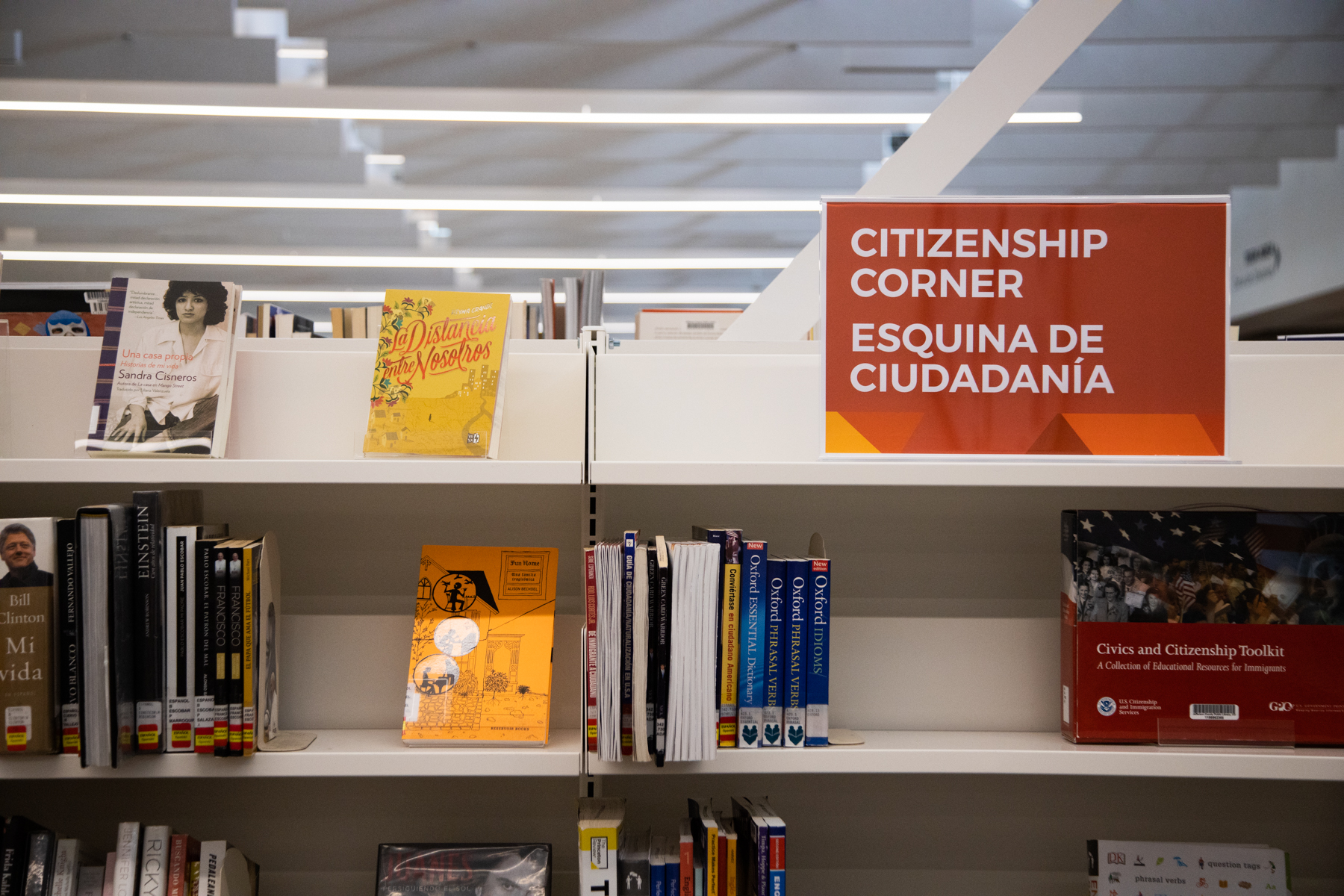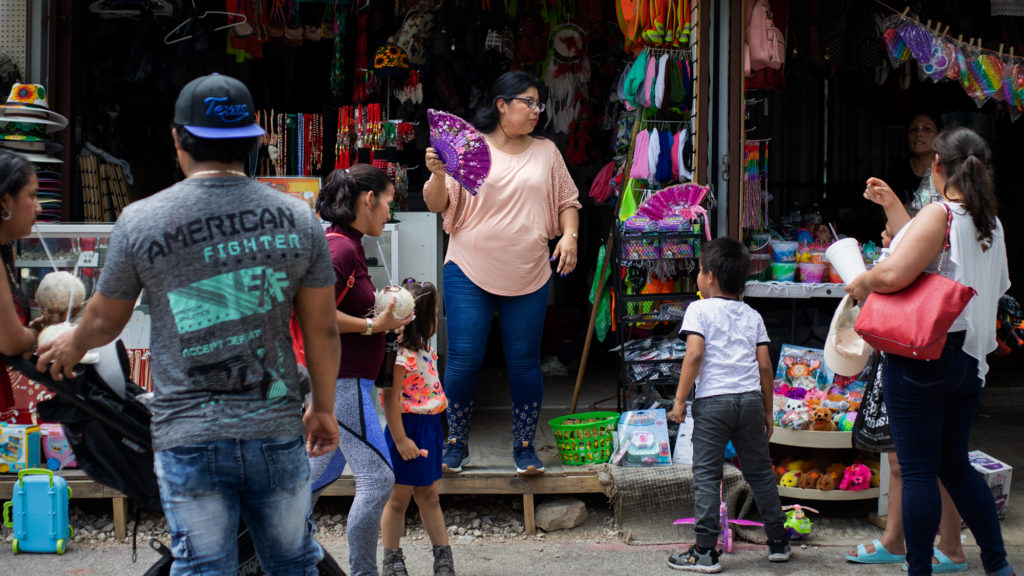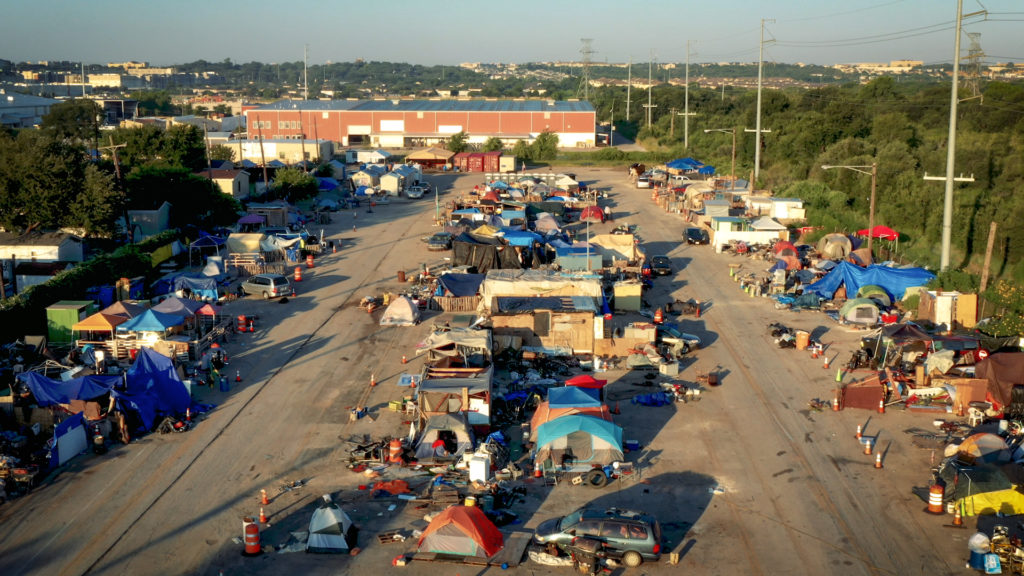A few years ago, the Jefferson County food bank began to notice something peculiar: Latinx families were not coming to the center. It was surprising considering the pantry was set up in a primarily Latinx neighborhood, and concerning considering that more than 12 percent of the county’s Hispanic families are on food stamps.
What the food bank didn’t realize was a simple intake form was making food access even more precarious. Clients coming to collect food, some of who were undocumented, were met with questions about income and housing, questions others might shrug off as routine. But for a population that has been repeatedly demonized and is wary of government authorities, picking up a box of food and being asked for personal details raised alarms regardless of immigration status.
“That was one of the first eye-opening situations in which [we] realized that these huge food banks … were doing that,” explains Paulina Erices, founder of Adelante Jeffco. “So we needed to go and talk to our biggest food banks in the county and say, hey, when you ask for income, address, phone number, all of these families run away. They’re just asking for a box of food.”
Adelante Jeffco, a network of social services organizations, listened to community members about their concerns and stepped in to educate the food bank about their practices. Part of Adelante Jeffco’s mission is to connect the county’s Latinx populations — especially those who are undocumented — to social services and nonprofit organizations in the area.
Nestled in the foothills of the Rocky Mountains, Jefferson County — Jeffco to those who live here — is home to more than 580,000 people, making it the state’s fourth largest county. Its 775 square miles spread from the Denver suburbs west through rural mountain towns.
In her work as a maternal child health specialist for Jefferson County Public Health, Erices watched as Latinx communities were repeatedly under-represented when it came to social services, despite accounting for more than 15 percent of the county’s population.
“Many of these larger organizations don’t even realize the barriers that people are facing,” says Erices, citing access to transportation, work, and the COVID-19 pandemic as just some of the challenges.
Volunteer Maria Bustos directs people in line during a weekly drive-through food distribution that some of Adelante Jeffco’s partner organizations put together. [Photo by Kelly West]
To help better serve Jeffco’s Latinx population, Erices founded Adelante in 2018 after a particularly inspirational day at a children’s splash park. Erices had scheduled a meeting at the park with three members of a local nonprofit, and was shocked when 11 people showed up for the appointment.
“They were all working with me on some different project. And they came together and said, we actually want to work together. All of us.”
Serendipitously, Erices had just applied for a grant to help fund a community-based initiative through Jeffco’s public health department. They got the grant and began building the network that would become Adelante. Over the next two years, the group morphed to become a problem-solving advocate for those in the Latinx community, a network of nonprofits and governmental departments that work to eliminate barriers to access and empower residents to help shape the social care system.
Paulina Erices, founder of Adelante Jeffco and maternal child health specialist for Jefferson County Public Health, has watched as Latinx communities were repeatedly under-represented when it came to social services. “I’m working with people so they understand the needs of marginalized communities in a dignified way,” says Erices. “It’s not charity. It’s a responsibility.” [Photo by Kelly West]
“From the beginning, the goal has been to create capacity in the Latino community because we believe they have the solutions to their own problems. They are the best ones to decide what is best for them, especially when it comes to family,” says Paula Vilaxa, diversity and inclusion coordinator at Jefferson County Public Library, one of the organizations that works with the Adelante network.
If Adelante seems hard to define, that’s because it is. Its design is adaptable, crafted to react to the needs of the community rather than anticipate them. Adelante hears directly from Jeffco residents and then taps its network of organizations to find solutions. Basically, they listen.
“I think it has changed the paradigm for all of us who work in public service,” Vilaxa says. “We don’t try to create solutions anymore. We are at the service of the community and we’re just open to what they need.”
In the spring of 2020, as the pandemic’s impact grew larger, so too did the needs of the community. In response, Adelante tasked community navigators — paid volunteers who make up to $20 per hour — to help listen to those needs. Clients, many of whom are either undocumented or have family members without papers, leave a phone message detailing their issue and receive a call back within a week. Since March, they have received over 7000 calls.
“Our Hispanic community is not informed in regards to the resources that we can have access to because we’re afraid of our immigration status,” explains Lucy Guereca, who works as an Adelante community navigator, often clocking 12-hour days taking calls from her kitchen table while her kids bring her meals and water.
While getting assistance is easier for those with documents, Guereca says that’s not the only reason people don’t seek help. “Sometimes it’s fear, [but] other times it’s a lack of time. You don’t have enough time. Because in our culture, both parents work,” she says. Add in the growing technology gap within the Latinx community, and navigating red-tape bureaucracy can be so overwhelming it’s crippling.
The need for assistance has only spiked in recent months due to the COVID-19 pandemic. A recent study published by the National Institutes of Health shows that undocumented populations not only have a higher chance of contracting the novel coronavirus at work, but they are also far more likely to suffer disproportionate impacts from the disease because of preexisting economic and health disparities.
“Depending on their mode of entry into the U.S., many immigrants may be at risk for excessive stress related to poverty, trauma, and poor social support, which leads to mental health conditions, such as post-traumatic stress disorder, depression, and anxiety,” the NIH study says. “These psychological stressors may be worsened during a pandemic, certainly for those with limited healthcare resources, high risk of job loss, or high risk of SARS-CoV-2 exposure.”
In her role as a community navigator, Guereca says she’s seen first-hand the pandemic’s impact on Jefferson County’s immigrant community.
“People are really needing rent money,” explains Guereca. “That is what they need most because they lost work hours or they lost their job completely. So what people really need right now is money for rent, money for bills, because they don’t wait for you.”
There is an economic argument for keeping Jefferson County’s immigrant population protected — numbers from New American Economy show Colorado’s immigrant population paid $5 billion in taxes in 2018 — but for Adelante’s founder, it’s about humanity.
“I’m working with people so they understand the needs of marginalized communities in a dignified way,” says Erices. “It’s not charity. It’s a responsibility.”

